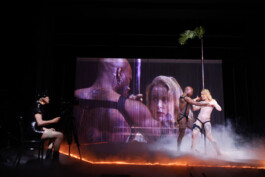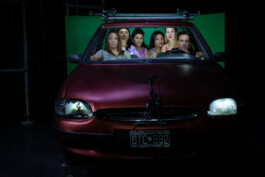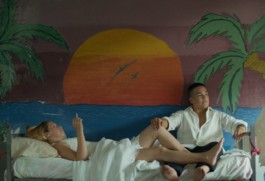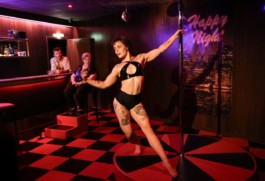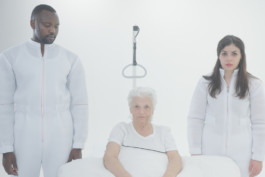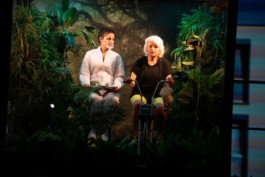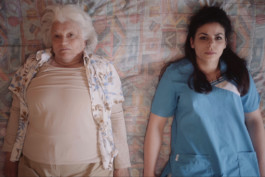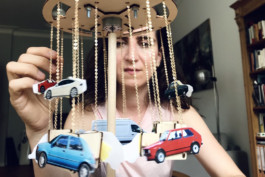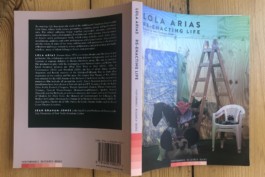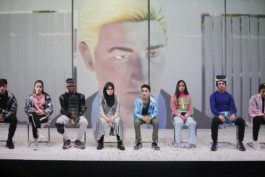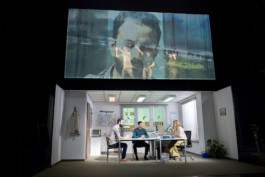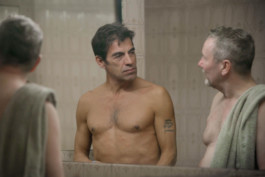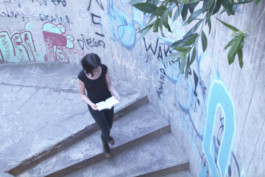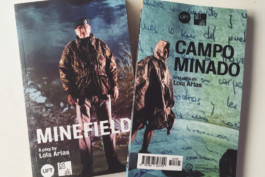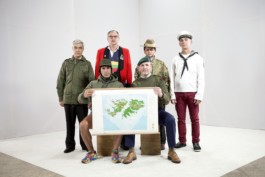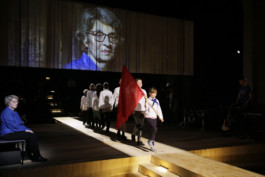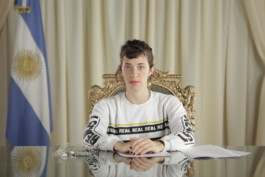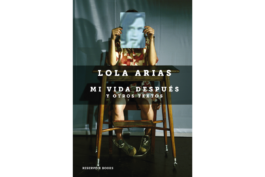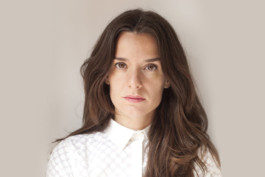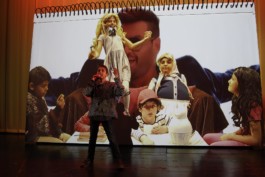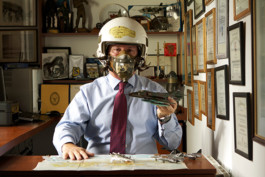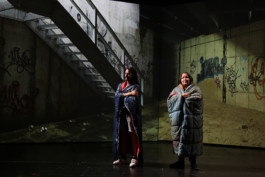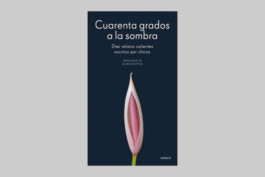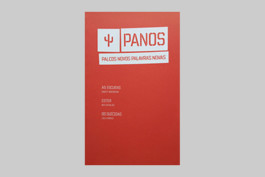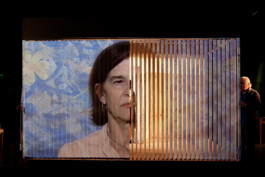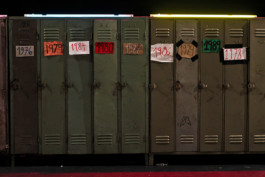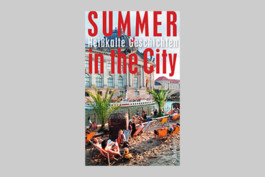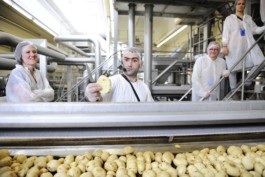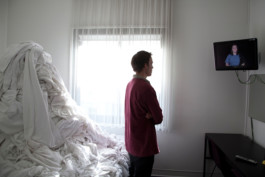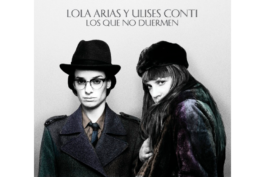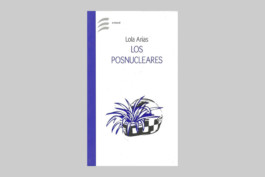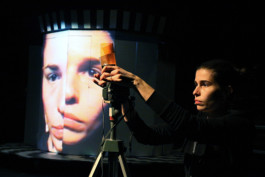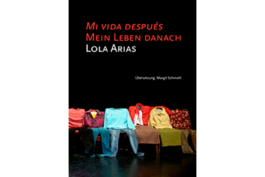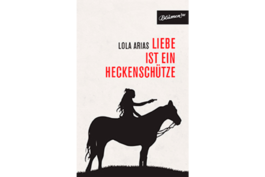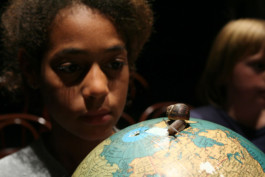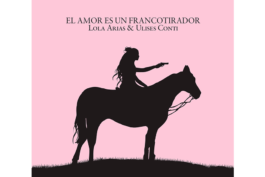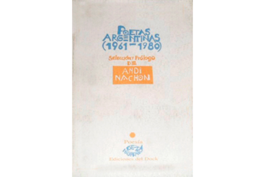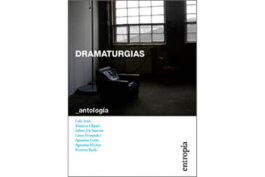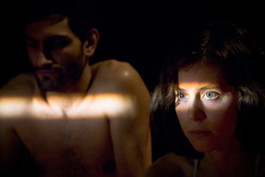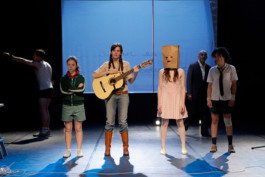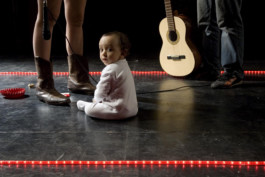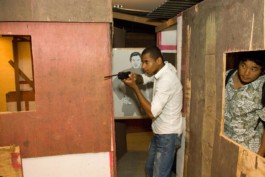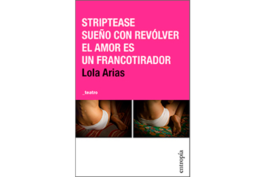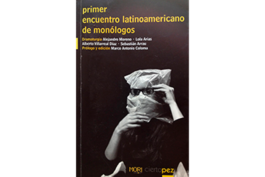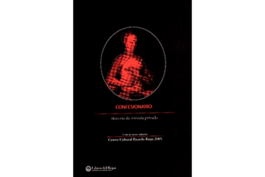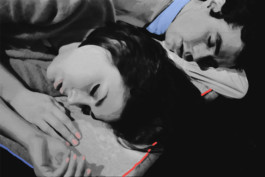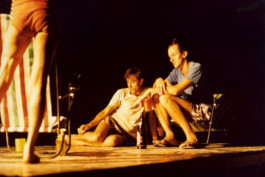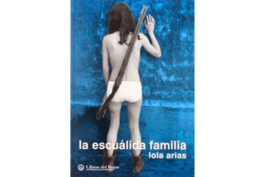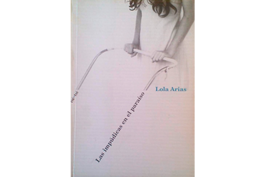My Documents
2020 — 12
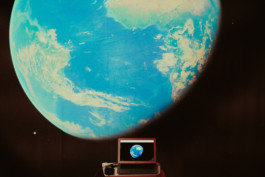
© Ana Viotti
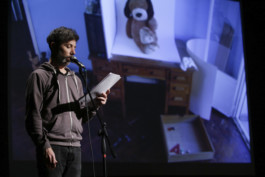
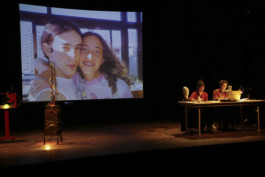
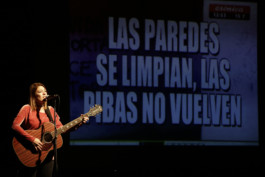
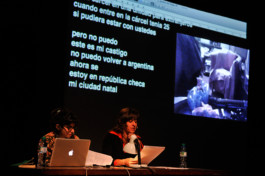
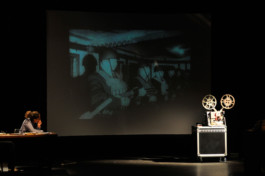
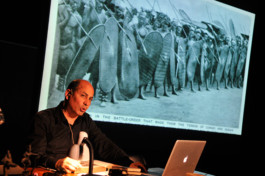
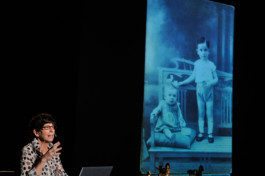
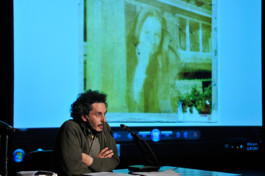
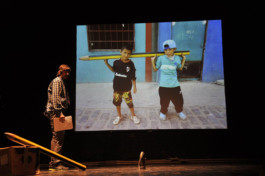
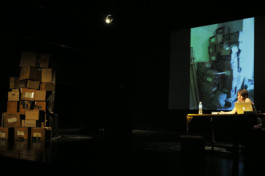
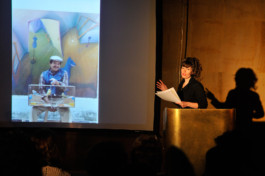
My Documents is a lecture performance programme where artists from different backgrounds present personal research, a radical experience, a story that secretly obsess them. My Documents has a minimal format: artists with their documents. A way of bringing to light the kind of research that often gets lost in a nameless folder in a computer.
The programme seeks to delve into the genre in search of a contagion among conceptual art, research, and theatre. A space where speeches, formats and audiences from different disciplines can come together.
The program has been held since 2012 in Buenos Aires, Vigo, Milan, Lisbon, with artists from different disciplines.
MY DOCUMENTS | Share your screen. Global version, 2020.
For My Documents | Share your screen, Lola Arias invited several artists, from dance, documentary film, visuals arts and theatre to delve into their personal archives. In this new global version, artists from different parts of the world will be virtually there, in their new domestic stage, showing their archive on a shared screen with the audience. The audience can see the performance live, make comments and exchange visions and insights afterwards.
In Doing It, the Portuguese actor and director Pedro Penim confesses a secret passion that takes him very far across the sea of the internet. In Make me stop smoking, the Lebanese writer and director Rabih Mroué reconstructs the radical heterogeneous landscape of Lebanon, destroyed by crises and wars, with the aid of countless anonymous and personal documents*. In Blue House, the Chinese dancer and documentalist Zhang Mengqi shares her diary of the time she was locked in quarantine in Hubei province, as well as her art experiments in her father’s village. In Or All Your Changes Will Be Lost the English writer and director Tim Etchells investigates his own physical and digital notebooks, in which he has gathered written materials of different kinds for more than 35 years. In Lázaro, the Mexican theater company Lagartijas Tiradas al Sol reconstructs the story of an actor who decides to change his face and name and become someone else.
* Rabih Mroué was invited as a guest with his non-academic lecture Make me stop smoking, a piece produced by Ashkal Alwan - Beirut, with the support of International short film festival Oberhuasen, 2006.
MY DOCUMENTS. Lisbon, 2020.
For the last version of My documents presented in February 2020 in Lisbon, the filmmaker Marta Mateus presented Seeing the ships passing by how an artist oscillates between writing her film and a letter against cruise’s pollution in Lisbon, a journey from art to activism and the other way around. The actor and director Pedro Penim presented Doing it, where he explored the question What do we do with our computers when nobody see us? and shared his dark obsession on traveling virtually to unknown islands. The dancer and choreographer Filipe Pereira presented Floral arrangement, based on Fatima, his birth town, a very religious village where the virgin appeared long ago and is still revered with multitudinous processions every year. A journey from faith to atheism, from heterosexuality to homosexuality, from the art of making floral arrangements to dance.
MY DOCUMENTS. Buenos Aires, 2017.
For My documents 2017 Buenos Aires, the duo of playwrights-directors Walter Jakob and Agustín Mendilaharzu present the life of the objects that they resist to throw in Our beloved objects. The illustrator Powerpaola performs a live comic about the relation between drawing and the supernatural in Drawing has powers. In How did I become a feminist? My legal case, the artist Fatima Pecci brings on stage the legal case for which she and other women activists are being prosecuted. Grupo Etcétera presents Fake news about the danger of false information in the era of post-truth. Artist Denise Groesman reviews diaries, notebooks and other records of her teenage years in Portrait of a Teenage Artist. The writer and musician Francisco Garamona explores the relationship between writing and the unconscious through a session of literary hypnosis in Dad, I´m frightened.
MY DOCUMENTS. Buenos Aires, 2015.
For My Documents 2015 Buenos Aires, Musician Rosario Bléfari presents her project Taylor-made songs, where songwriting becomes a service to others. Artist Roberto Jacoby restates his conference Look how I shiver!, based on connections between fear and media both in the past and the present. Filmmaker Ignacio Masllorens shows us his Found films. Writer and artist Leticia Obeid interviews the most famous Mexican dubbers in Voice stunt, revealing the misunderstandings of neutral Spanish. The artists´ collectives Foro Danza en Acción and and TIM present SM Report, an investigation on the private history of the public theater.
MY DOCUMENTS. Buenos Aires, 2014.
For My Documents 2014 Buenos Aires, the poet and performer Tálata Rodríguez rescued from the damp the letters from her father, a shaman, rocker and tarotist from the Colombian guerilla conflict, in Postcard Father. In The Invisible Piano, the musician Ulises Conti led us through the history of the piano, right up to its disappearance. In Tuning Fork, the writer Iosi Havilio reconstructed the consequences of acting in Jorge Polaco’s first film at the age of ten. In Double Lives, filmmaker Alejo Moguillansky and choreographer Luciana Acuña spoke of their parallel journeys into the underworld of strippers and the world of war submarines. The musician and actress Liza Casullo in Chapter 32 spoke about her father Nicolás Casullo’s novel The Greengrocer with Radiant Eyes. In My Map of Villa 31, the visual artist Leopoldo Estol reports about his artistic experiences in the Retiro shanty town, including the construction of a giant trainer that became a portable monument.
MY DOCUMENTS. Buenos Aires, 2013.
For My Documents 2013 Buenos Aires, Ana Gallardo drew a portrait of her father through his passion for collecting cockerels in Cockerel Collection. Félix Bruzzone wrote his views of Campo de Mayo –military garrison, refuse dump, extermination camp– from a jogger’s erratic point of view. In Ricky and the Bird, Martín Oesterheld told of his random encounter with the artist Alberto Heredia, who looked after his father’s paintings and him when he was too young to remember. Laura Kalauz and Agostina López presented Vanishing Point, a project of artistic exchanges with inmates at Ezeiza Prison. Andrés Di Tella returned to Photographs, his autobiographical project about the romance between his Indian mother Kamala and his father Torcuato. In The Velázquez Affair, Albertina Carri went back to an old project inspired by her father’s book about Isidro Velázquez, a revolutionary gaucho. And Marsha Gall and Ivana Vollaro spoke about one person’s metamorphosis to meet US visa requirements in Transnational Subject.
MY DOCUMENTS. Buenos Aires, 2012.
For My Documents 2012 in Buenos Aires, Julian d’Angiolillo presented Official Pirate, a look at the art of piracy, from Parque Rivadavia to La Salada. In Simultaneous Translation, Sofía Medici narrated the erratic research process she went through to put together a performance about the House of Independence in Tucumán. Mariano Llinás reconstructed The Voyage of the Salado del Sud Steamer to Chascomús, the story of a steamship that crossed the plains of the province of Buenos Aires in 1857. Nele Wohlatz and Gerardo Naumann in 7 Journeys talked of the negotiations to film in Aurora, a town of German descendents in Misiones where God decides what can be filmed and what cannot. Lux Lindner reviewed the rare books her family inherited, looking for a ghost’s fingerprints in The Happy Man’s Library. Beatriz Catani presented Today, a diary she began when her partner died, and at the same time an investigation into the world of the poets in the city of La Plata in the 1960s and 70s.
Credits
Concept and CURATORSHIP Lola Arias
Production Luz Algranti (Buenos Aires), Sofía Medici (Vigo)
DRAMATURGY Bibiana Picado Mendez (Milan, Lisbon, Share your Screen)
